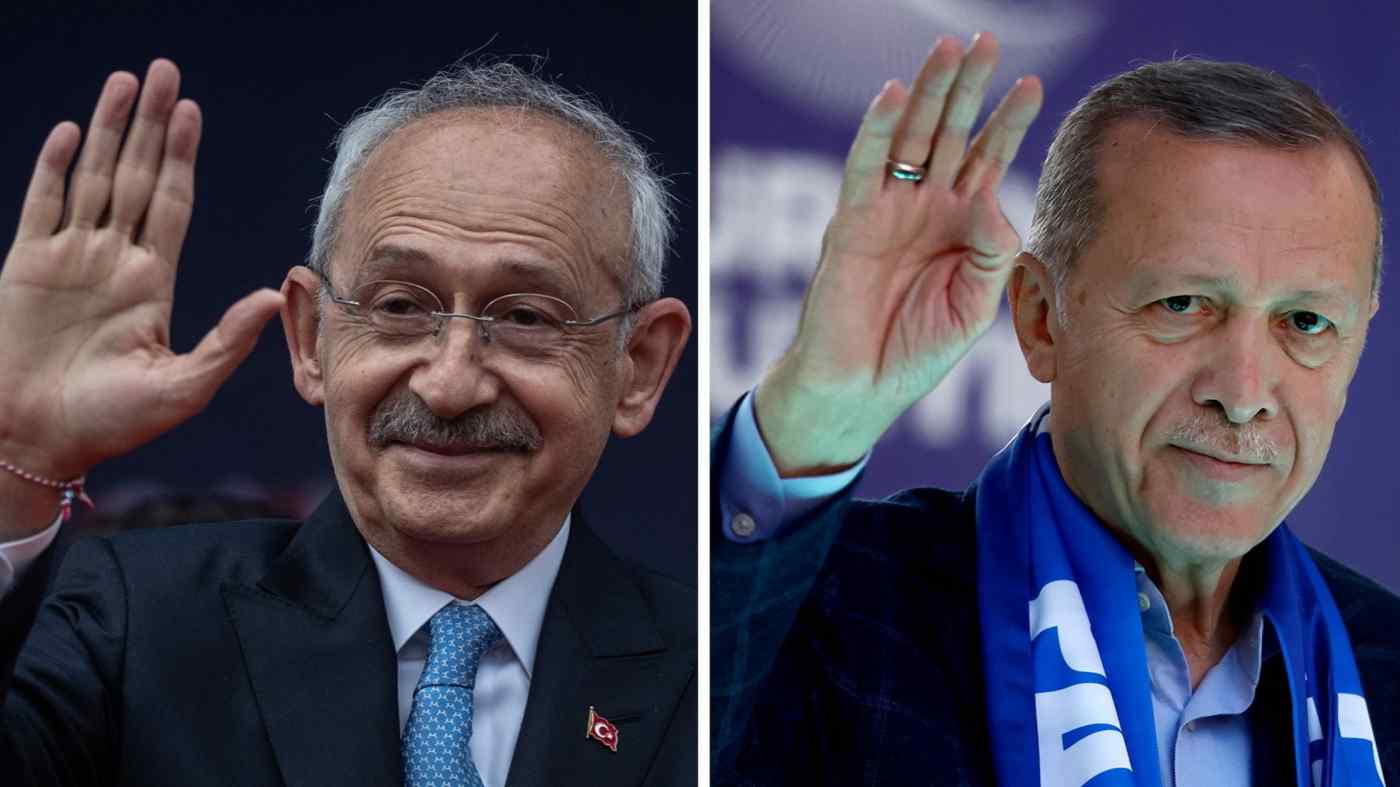Alwaght- Turkey’s most sensitive presidential election in years is headed to a runoff as the rivals have failed to secure an outright win with 50 percent of the votes. President Recep Tayyip Erdogan and opposition leader Kemal Kilicdaroglu are set to race for a win on May 28.
Although most of the polls had predicted a runoff, since the early hours of the vote counting, Erdogan’s lead over his rival surprised the observers because a majority of the polls had suggested higher popularity and chances of victory for his challenger Kilicdaroglu. However, due to the very narrow margin between the votes of the two candidates, in the remaining days until the second round of voting, the competition will remain heated. The preliminary results showed that Erdogan won 49.5 percent of the votes and his main rival won 45 percent.
In such conditions, Erdogan, on the one hand, will certainly promote his relative win in the first round and also the majority gain of his party Justice and Development Party (AKP) in the simultaneous parliamentary elections as a sign of people’s confidence in them and try to keep the distance with his rival. On the opposite side, Kilicdaroglu will move to designing new scenarios to reverse his setbacks and boost his vote basis through mobilizing the opposition ranks. Therefore, due to the surprise of the first round and the fact that no candidate could emerge as a definite winner, there are a set of scenarios for the runoff.
This is the first presidential election in which Erdogan did not win outright. However, despite the drop in public support to the old stager of the Turkish political arena, he still has the main chance to win the presidency because his party performed better than expected in the elections, and the People’s Coalition led by Erdogan managed to maintain the majority of the parliament. Analysts say this will give the Turkish leader an edge in the second round as voters may want to avoid having different factions running the executive and legislative powers at the same time.
This issue was pointed at on Monday by Erdogan. In an address to his supporters, the president said: “We have no doubt that the preference of our nation, which gave the majority in parliament to the People’s Alliance, will be in favor of confidence and stability in the runoff.”
According to initial results, the AKP and its allies managed to secure 321 seats, while the opposition got 213 and the 66 remaining votes were taken by the Kurdish alliance.
From another perspective, Erdogan’s lead in the first round may shake the pillars of the opposition coalition, especially that the voters in favor of the Kurdish People’s Democratic Party (HDP), despite the satisfactory results in the parliamentary voting and securing 66 seats in coalition with left-wing Green Party, could not help the opposition camp.
Also, and most importantly, under the runoff, the votes of the second candidate, Sinan Ogan, will grow highly vital. He is from the right-wing and a staunch opponent to coalescing with the Kurds. Ogan, who won 5 percent of the votes, announced in his first statement after the elections that he would ally with Kilicdaroglu only if the HDP is removed from the political system.
In the meantime, Erdogan is seizing the opportunity, and to block such a scenario, he is maneuvering on sensitivity of the pro-Ogan pan-Turkists. Ahead of Sunday’s vote, Erdogan berated the opposition for supporting the outlawed Kurdistan Workers’ Party (PKK). In a gathering, he showed hundreds of thousands of his supporters a video claiming that a PKK commander was singing the opposition’s campaign song.
Soner Cagaptay, the Beyer Family Fellow and director of the Turkish Research Program at The Washington Institute, believes that a majority of the pro-Ogan voters will flow to Erdogan, whether or not their main candidate backs the president. So, given the high importance of Ogan’s voters, Erdogan will highly likely be the magnet attracting these votes compared to his rival.
Still, the race should not be considered totally lost by Kilicdaroglu and the opposition camp. The first hope of him is a more serious mobilization of the opposition and their persuasion to vote. In Sunday’s election, about 88 percent of eligible voters cast their votes, which was a stunning figure, but it is possible that after the shock of the result of the first round to the opposition, contrary to polls, voters who fear Erdogan’s continued presence in power would be encouraged to participate in the elections and, thus, another surprise can take place.
Also, it should not be forgotten that despite the fact that Ogan’s supporters are from the nationalist right, the nationalists are also present in the six-party opposition coalition. The Republican People’s Party (CHP), a leading opposition element, was founded by Kemal Ataturk, the founder of modern Turkey, and Ogan’s statement shows that the nationalists are discontented with Erdogan and are uninterested to ally with him. Additionally, though it may looks unlikely, the Kurds may choose Erdogan’s departure in their dilemma of choosing between Erdogan’s stay in power or avoiding share-seeking. In this connection, Kilicdaroglu has made his initial proposals to Ogan, and after the publication of results on Sunday night, he phoned him and congratulated him for the votes he secured probably for Kilicdaroglu to highlight his Kemalist identity more than before for the runoff.



























